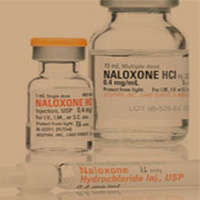
NIDA-funded research exploring barriers to prescribing naloxone, a safe, easy-to-use drug that can prevent opioid overdose deaths, suggests that primary healthcare providers have limited knowledge about it, and have concerns about its misuse and safety. Other perceived barriers to naloxone prescribing included insufficient time during patient appointments, inability to follow up with patients, fear of offending patients, privacy issues, and concerns that patients would be less careful in their opioid use if they possessed a perceived “antidote” to overdose. Participants also had difficulty with the concept of prescribing opioids along with an overdose medication as this seemed to send the message that a patient should not be taking the prescribed opioids.
Because this study included a small sample (56 participants), more research is needed to determine if these knowledge gaps and attitudes are common among healthcare providers. However, these findings provide guidance for the development and testing of strategies to promote appropriate naloxone prescribing practices in primary care settings.
To view the abstract of the article (published in the Journal of General Internal Medicine), go to: http://link.springer.com/article/10.1007/s11606-015-3394-3. To learn more about naloxone for the prevention of opioid overdose deaths, go to www.drugabuse.gov/about-nida/noras-blog/2014/02/naloxone-potential-lifesaver.
For more information, contact the NIDA press office at media@nida.nih.gov or 301-443-6245.
